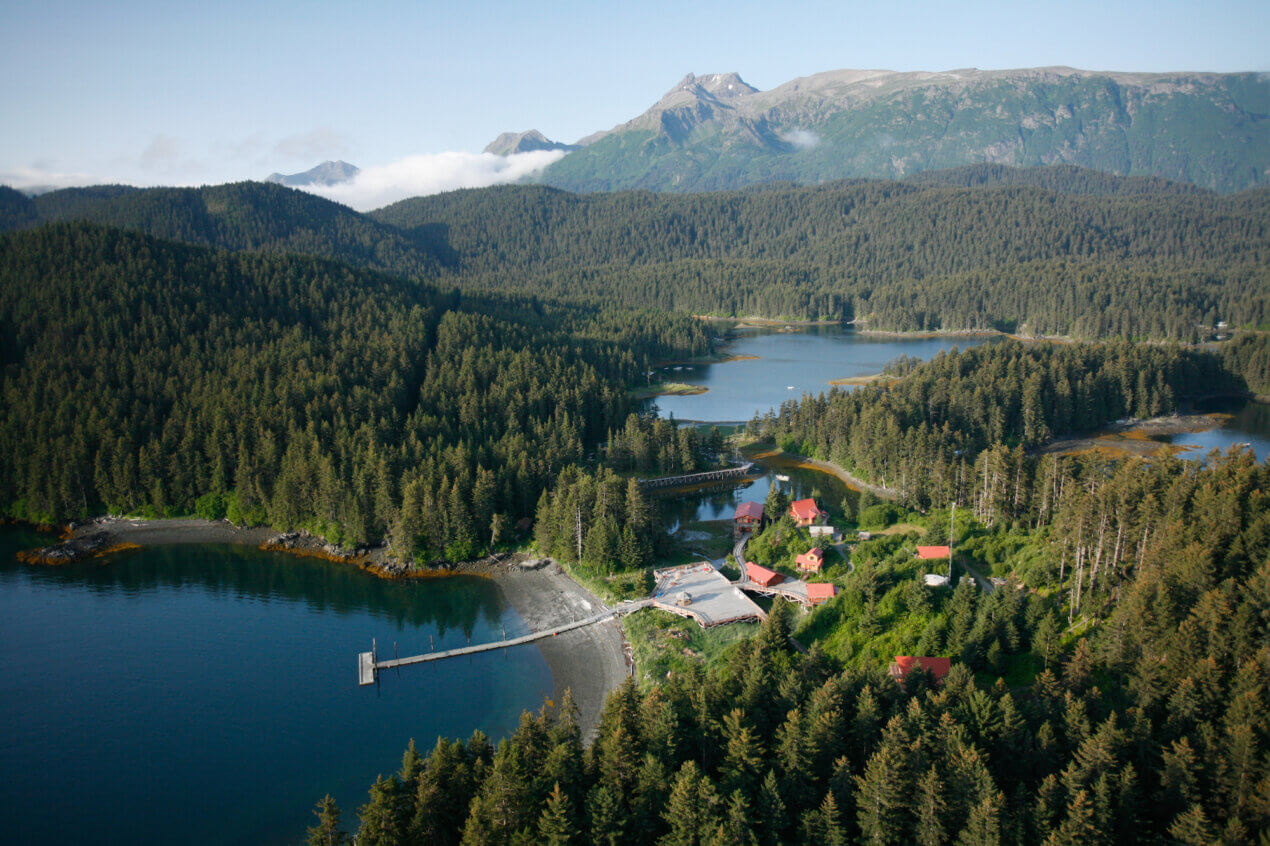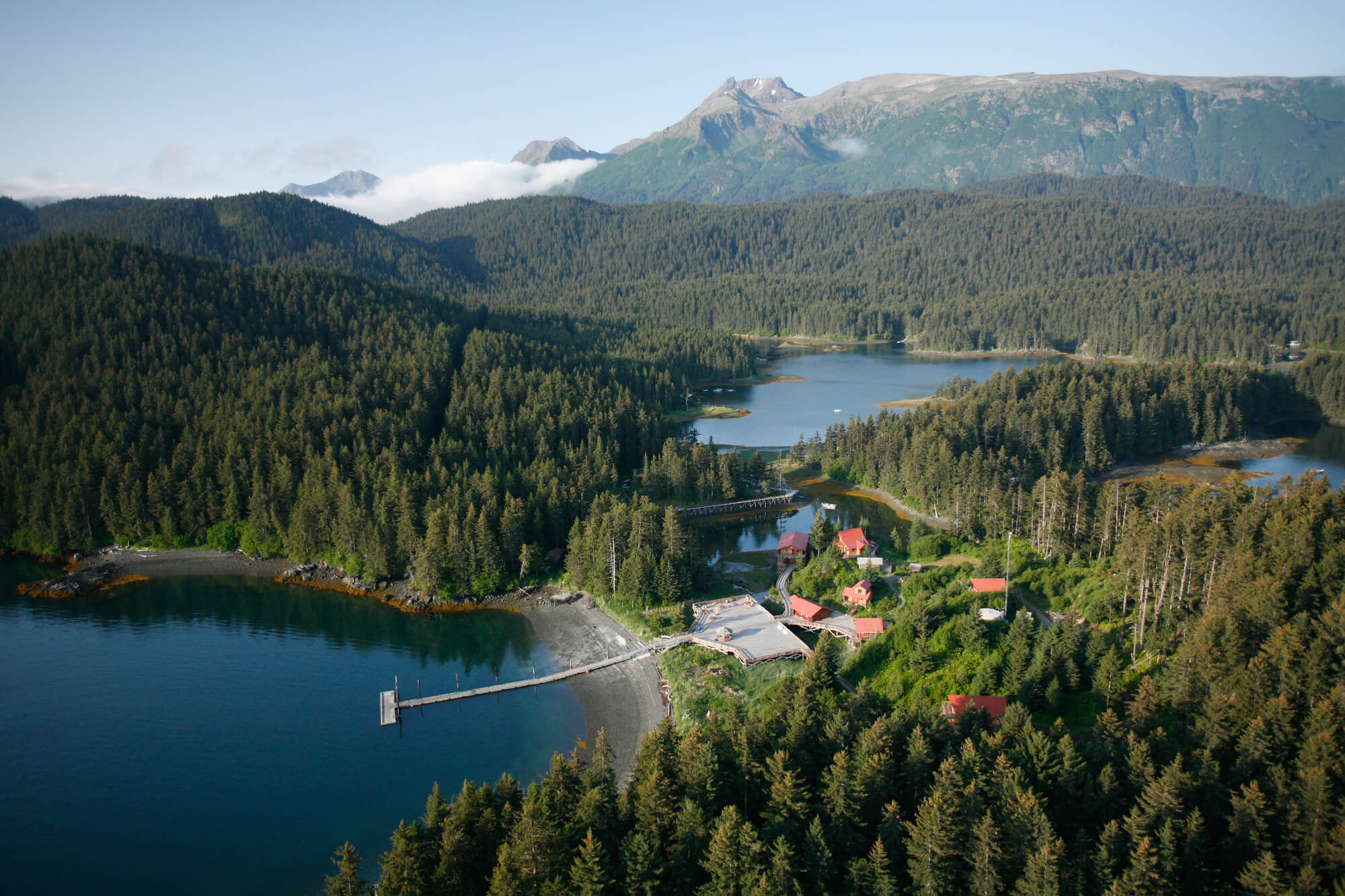Luxury Meets Adventure in Alaska: Within the Wild
Luxury Meets Adventure in America's Final Frontier
For most of us, the Alaskan wilderness isn’t the type of place we venture to alone. It can be challenging for even the most experienced and hardy hikers. Case in point: the bus from Into the Wild was removed by the Alaska Army National Guard in 2020 after two hikers died trying to reach it, and a further 15 needed rescuing. But if you want to see nature at its most raw, spectacular and uncrowded – if you want true adventure and an experience you’ll never forget – then the Last Frontier should be on your travel list.
Our interviewee this week is Kirsten Dixon, owner of Within the Wild, two luxury adventure lodges in remote South Central Alaska. Kirsten’s family – her husband Carl, their two daughters and their respective partners – are experienced outdoors people, foragers, makers, and chefs. In other words, they’re the ideal hosts to guide you through some of Alaska's most extraordinary adventures, from bear spotting and dog sledding to experiencing the aurora borealis. Read on for Kirsten’s take on hospitality that’s in tune with the seasons, the importance of being good stewards of the land, and how the Dixon family emulates French farmhouse-style living in Alaska.
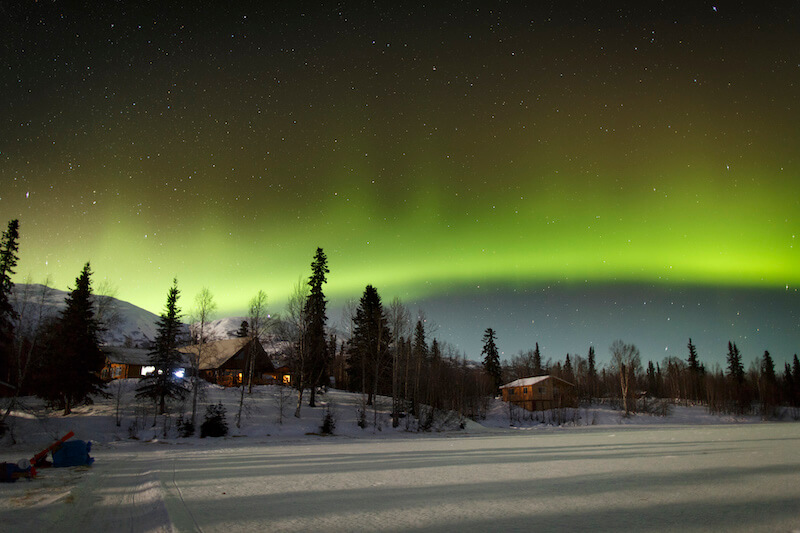
Esme Benjamin: I'd love to hear a little bit about your background and how you came to start Within the Wild.
Kirsten Dixon: I came to Alaska when I was a young girl, right out of college. I received a scholarship from the United States Public Health Service and was assigned to work at the Alaska Native Medical Center in Anchorage, and there I met my husband Carl. Carl had been here for about 10 years before I met him, and he was already on something of a trajectory to leave the medical profession and live closer to the natural world. We married about a year after we met, and then in 1982 we moved to a remote part of Alaska along a river and started a little fishing lodge. Since then, we have remained in the hospitality business. Our company mission is really to take people to unique and rarefied places within the natural world. We sold that fishing lodge quite some years ago and now we own two lodges: Winterlake Lodge, along the Alaska Range Mountains, and Tutka Bay Lodge, which is on the Gulf of Alaska.
EB: I know you're also a celebrated chef now which is very impressive!
KD: Well, thank you. It's just been a strong interest of mine and after I left nursing I was able to study it more intensely. The whole reason we bought the Tutka Bay property is because I wanted to learn about seaweed. We dehydrate seawater and it makes us gorgeous salt, and we pick sea lettuce at low tide. There's just a rich abundance here in South Central Alaska. We're really lucky that we have a lot of diverse and interesting edible things that we can plunk into our food.
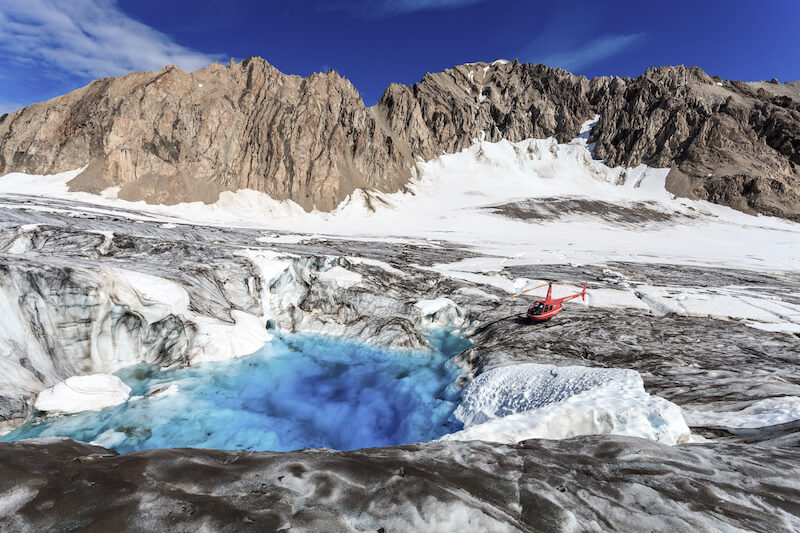
EB: Within the Wild feels pretty well placed for the post-pandemic travel boom. Staying at a lodge seems like it would be a really beautiful peaceful vacation that’s in keeping with our reverence for nature and need for connection without the crowds.
KD: We really want to create a sanctuary. We offer the opportunity for people to be contemplative while also being very active and very safe. Alaska is a little exotic for many Americans and it's definitely a place that everybody should experience. We have clean air, we have clean water, we have clean soil. And, of course, we have a lot of space, which isn’t true of other places right now.

EB: What do the lodges offer in terms of activities?
KD: We only have six guest cabins at each Lodge, so we can structure activities exactly as the guests wish. So if one person wants to hike all day and another wants to stay at the lodge and make cookies, and somebody else wants to sit in the hot tub or float out on the lake, they can do that. Adventure travel doesn't necessarily mean hanging off a rope somewhere, it can just mean being in an adventurous, new place.
EB: Does being a small property allow you to bond with guests more?
KD: We try to weave in our family story and connect guests to us in a personal way. We want to make them feel seen and known and heard and that they're just able to be real people and we're able to be real people with them. Authenticity and developing friendships are important to all of us right now. Last year was hard on me because I love family-style dinners where we have a long table and everybody's passing things to each other and chatting. I look forward to doing that again with guests soon.
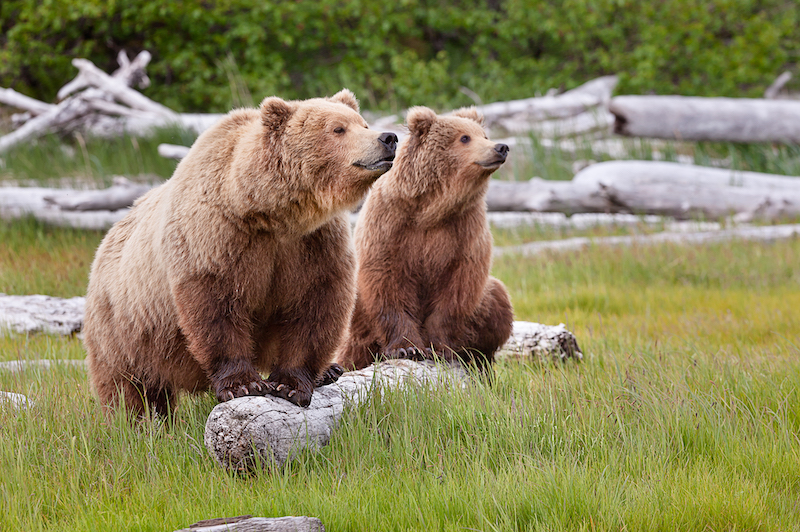
EB: You touched on your family's story and why you love Alaska. Can you go into that a bit more?
KD: Well, Carl and I had two daughters and we raised them at the original lodge – a remote place where we homeschooled them. They learned how to fish and hike and they're very good outdoors women. They both went away for some period of time as young adults, but came back to join the family business, along with their spouses. My daughter, Mandy, is a chef and she's part of our management, leadership team. My other daughter, Carly, got quite involved in health and fitness, so she heads up our wellness program. In the United States, it's unusual to have a family that lives together and works together, it's an old fashioned sort of life. I spent so much time in France when I was young and when I was learning how to cook that I think I've adopted a French farmhouse style of living, you know? We live right above the kitchen and we bake bread and we nurture our family. So we have a different story than many Americans might have.
EB: It sounds like an absolute dream. I like the idea that the service is small and personalized with custom designed itineraries, because it's just nice to have somebody else make decisions and organize things.
KD: For us, there's no greater work than to be in service to people. We couldn't care less about money, we couldn't care less about expansion and growth or ROI or business stuff, we want that moment when people say, "It was the best day of my life."
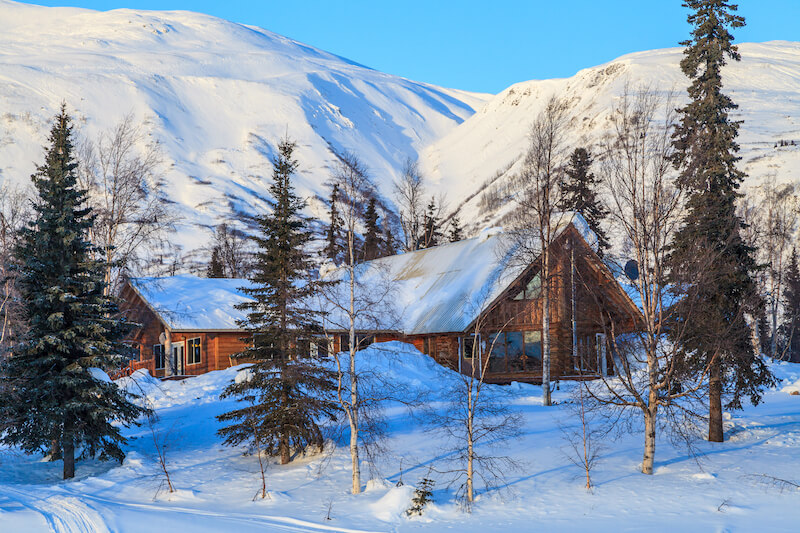
EB: You obviously love the land out there. How important is sustainability in Within the Wild?
KD: We want to have a very small footprint — to be sustainable, to be good stewards of the land where we live. If we had 500 rooms, we'd have sewer systems and water problems and pollution and we just couldn't do it in the way we do it now. We also couldn't be bigger and still provide the same quality of service.
EB: At this time of year, it starts to get really cold in Alaska. How do you change the way that you live and the service that you provide for guests to accommodate that shift in the seasons?
KD: Winterlake Lodge is the only property we open in the winter time. My husband puts in about 200 miles of trail for dog sledding, skiing, or snowshoeing. Right now, the sun comes up at about 9:30 a.m. and it goes down at about 3:30 p.m., so the daytime isn't tremendous but the light is beautiful — the casting of the low winter sun is pink and blue, almost like Japanese painting colors. At night time we take the guests out on the lake to watch the Northern Lights, then we make a little bonfire and cook some desserts or mulled wine. We also have an option of sitting in our sauna and then running to the plunge hole we cut into the frozen lake for some hot-cold therapy. We look forward to winter as much as we do summer.
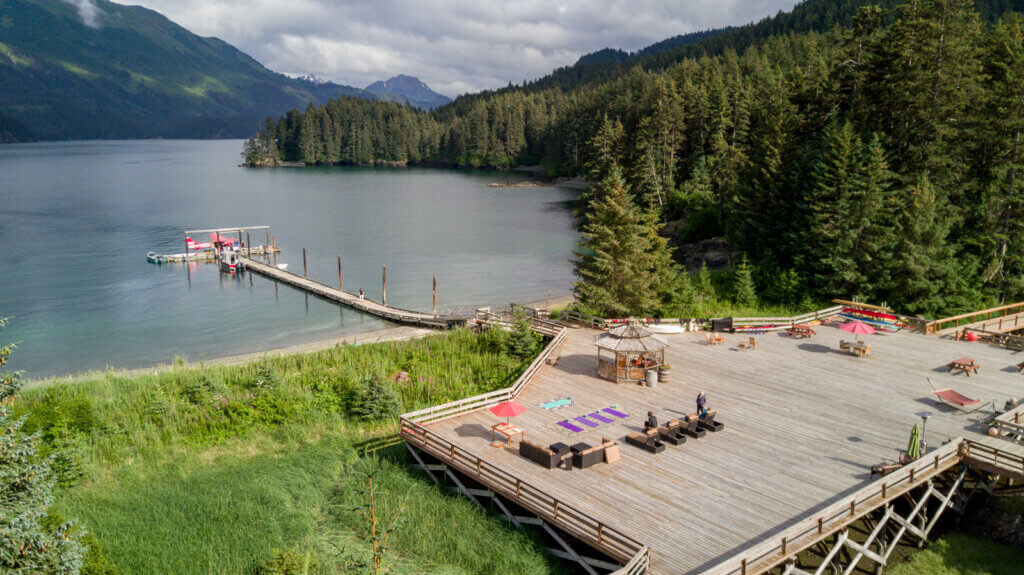
EB: What's your hope for the future of travel?
KD: I hope that we will be a little more thoughtful about travel — that we start really thinking about what travel costs the planet, in terms of us always being in airplanes and going to beautiful places and overwhelming them. I know economies survive on tourism and I don't know the answer to a lot of these complicated issues, but I just hope that we develop a little bit more sensitivity towards our planet and towards ourselves.
Visit withinthewild.com
